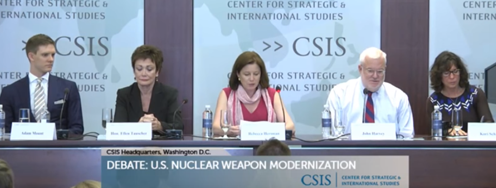U.S. Plans to Retire Unnecessary Nuclear Weapons in Asia
A news report from Japanese press sources indicates that the U.S. has informally told Japan that it plans to retire the nuclear-armed Tomahawk cruise missile from the Pacific region. The Japanese government is in agreement with the plan.
This decision is significant since it would demonstrate the Obama Administration’s commitment to its words about pursuing a nuclear weapon-free world. Identifying and removing unneeded, and in fact destabilizing, nuclear weapons from tense regions such as Northeast Asia represents a concrete step toward reducing their role in U.S. security policy. It also demonstrates loudly and clearly that Japan is not at all concerned about any weakening of U.S. commitment to its security. Opponents of a sound nuclear policy have constructed an argument about “extended deterrence” that uses Japan as its poster child. “We can’t change nuclear posture in the region,” the argument goes, “or it will send the wrong signal and weaken our alliance.” Well, apparently Japan itself understands that the U.S. is not stepping back from its security commitment. The U.S. has more than enough nuclear “reach” from other weapons to provided such a nuclear umbrella, and by removing the Tomahawk nuclear cruise missiles we actually increase regional security and begin taking real steps toward a reduced role for nuclear weapons overall.
The report also indicates that this decision, one that directly counters a pitch in a recent Congressional Commission on U.S. Strategic Posture, will be explicitly mentioned in the upcoming Nuclear Posture Review. This is good news for a positive nuclear security policy, an encouraging development for our shared nuclear agenda, and a clear and tangible example of concrete steps that must be taken to get us down the road toward zero.



